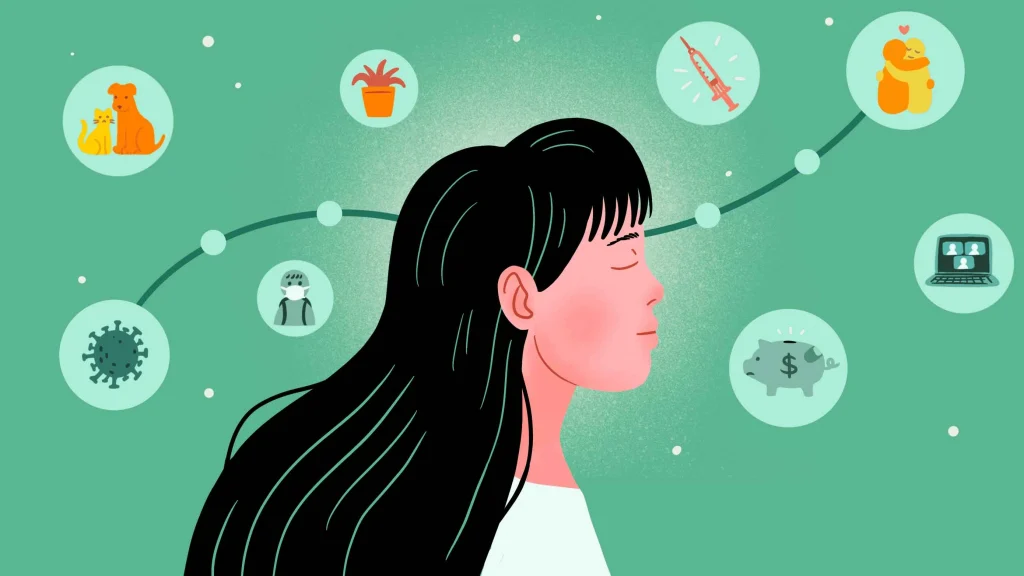Top Features Every Mental Health App Should Include for Better Care
In today’s fast-paced world, mental health apps have become an essential tool for supporting emotional well-being. With the growing demand for such solutions, mental health app developers are constantly working to create applications that cater to the unique needs of users, providing support for conditions like anxiety, depression, and stress. These apps serve as a bridge for those seeking help, offering accessible, user-friendly features that make managing mental health more convenient. But what makes a mental health app truly effective? Here, we’ll explore the top features every mental health app should include for better care.
1. User-Friendly Interface
A mental health app’s interface should be simple and easy to navigate. Mental health challenges can make users feel overwhelmed, so an app should be designed in a way that reduces stress rather than adds to it. A clear, intuitive design with calming visuals and an organised layout can greatly enhance user experience.
For instance, users should be able to quickly find tools like mood tracking, meditation guides, or access to a therapist. Avoiding complex menus and creating a seamless user experience will encourage individuals to return to the app regularly, helping them stay on track with their mental health goals.
2. Personalised Mental Health Plans
Everyone’s mental health journey is unique, and the best mental health apps recognise this by offering personalised care plans. These plans should be tailored to the user’s specific needs, offering suggestions based on their symptoms, progress, and preferences.
For example, an app could include a self-assessment tool where users answer a series of questions. Based on their answers, the app then recommends resources such as guided meditations, breathing exercises, or journaling prompts. The more personalised the experience, the more likely users are to feel that the app is addressing their specific mental health needs.
3. Mood and Progress Tracking
A key feature of any mental health app is the ability to track mood and overall mental well-being. Regularly monitoring emotional states can help users and professionals identify patterns, triggers, or progress over time.
Mood tracking features allow users to log their feelings daily or weekly. They can select from different emotions, rate their mood on a scale, and even leave notes about what might be contributing to their current emotional state. This data can provide users with insights into their mental health trends, empowering them to make more informed decisions about their well-being.
4. Access to Professional Support
While self-help tools are important, access to professional support is crucial for comprehensive mental health care. Many apps now provide a direct link to licensed therapists or counsellors. This feature allows users to schedule online therapy sessions, engage in text-based chats, or participate in group therapy.
Providing access to certified professionals ensures that users can receive expert advice when needed. It also opens up mental health care to individuals who may not otherwise have access to traditional face-to-face therapy due to cost, time, or geographical limitations.
5. Cognitive Behavioural Therapy (CBT) Exercises
Cognitive Behavioural Therapy (CBT) is a highly effective approach for treating conditions like anxiety, depression, and stress. A good mental health app should include a range of CBT exercises that users can engage with at their own pace.
These exercises might include thought-tracking tools, where users record negative thoughts and challenge them with more balanced alternatives. Other CBT activities might involve exposure therapy for anxiety or exercises that help users reframe their thinking patterns. Incorporating CBT features within the app can give users valuable tools to manage their mental health on their own terms.
6. Mindfulness and Meditation Guides
Mindfulness and meditation are widely recognised for their benefits in reducing stress and promoting mental clarity. Many mental health apps offer guided meditation sessions, breathing exercises, and mindfulness practices that help users stay grounded.
These features are particularly useful for users who are new to mindfulness or need help staying consistent with their practice. Daily reminders, customisable meditation lengths, and soothing audio can make these practices a regular part of a user’s mental health routine.
7. Emergency Support and Crisis Resources
Mental health can be unpredictable, and there may be moments when users need immediate help. A mental health app should include easy access to emergency support and crisis resources. This could be a feature that connects users to local emergency hotlines, support groups, or suicide prevention services.
An SOS button, for instance, could quickly dial a helpline or alert a trusted contact. Having a direct line to help in times of crisis can provide peace of mind and potentially save lives.
8. Anonymity and Privacy
When it comes to mental health, privacy is a top priority for many users. Mental health apps should ensure that user data is secure and that any personal information shared within the app is kept confidential.
This includes offering anonymous support features, such as forums or chat rooms where users can interact with others without revealing their identity. Ensuring compliance with data protection laws, such as GDPR, is essential to gaining users’ trust and maintaining the credibility of the app.
9. Habit-Forming Tools
Establishing positive habits is critical for improving mental health over time. Many mental health apps include habit-tracking tools that allow users to set goals and monitor their progress.
For example, users might track habits like exercising, getting enough sleep, journaling, or practising gratitude. These tools can include reminders, streak tracking, and progress reports to keep users motivated as they work on building healthy routines that support mental wellness.
Conclusion
The demand for mental health apps continues to grow, and with that comes the responsibility to ensure these tools provide the best possible care. A well-designed mental health app should include a user-friendly interface, personalised care plans, mood tracking, and access to professional support. Features like CBT exercises, mindfulness guides, emergency resources, and privacy options also play a vital role in supporting users.
Just as these apps offer structured support, academic tools like seminararbeit schreiben lassen (having a seminar paper written) help students manage stress by ensuring well-organized and high-quality work, reducing academic pressure. By integrating these key elements, mental health apps can empower individuals to take control of their mental well-being and receive the care they need in an accessible and efficient manner.
FAQs
1. What should I look for when choosing a mental health app?
When selecting a mental health app, look for features such as ease of use, personalised care plans, mood tracking, access to professional support, and privacy protection. Apps that offer mindfulness and CBT exercises can also be beneficial.
2. Can mental health apps replace therapy?
While mental health apps provide valuable tools for managing mental health, they are not a replacement for professional therapy. However, they can complement therapy and provide support between sessions or for those who cannot easily access traditional therapy.
3. Are mental health apps safe to use?
Most mental health apps are designed with user safety in mind, particularly in terms of privacy and data protection. Always choose apps that comply with relevant data protection laws and offer anonymous support if needed.
4. How effective are mental health apps?
Mental health apps can be effective for users who engage with them regularly. Features like mood tracking, habit-forming tools, and mindfulness exercises can provide long-term benefits, but they work best when used consistently.
5. Can I use a mental health app if I’m not diagnosed with a mental illness?
Absolutely. Mental health apps are for everyone, whether you’re managing a diagnosed condition or simply looking to improve your overall mental well-being. Many features like meditation guides and mood trackers are helpful for general mental health maintenance.














Post Comment